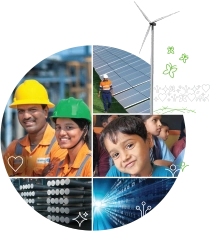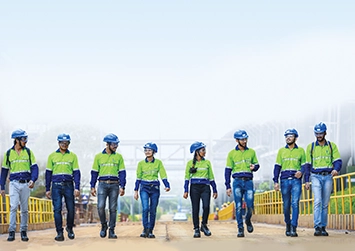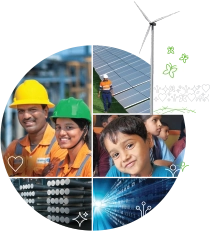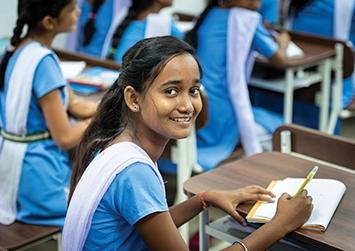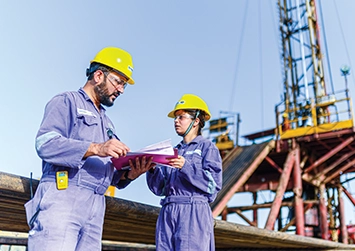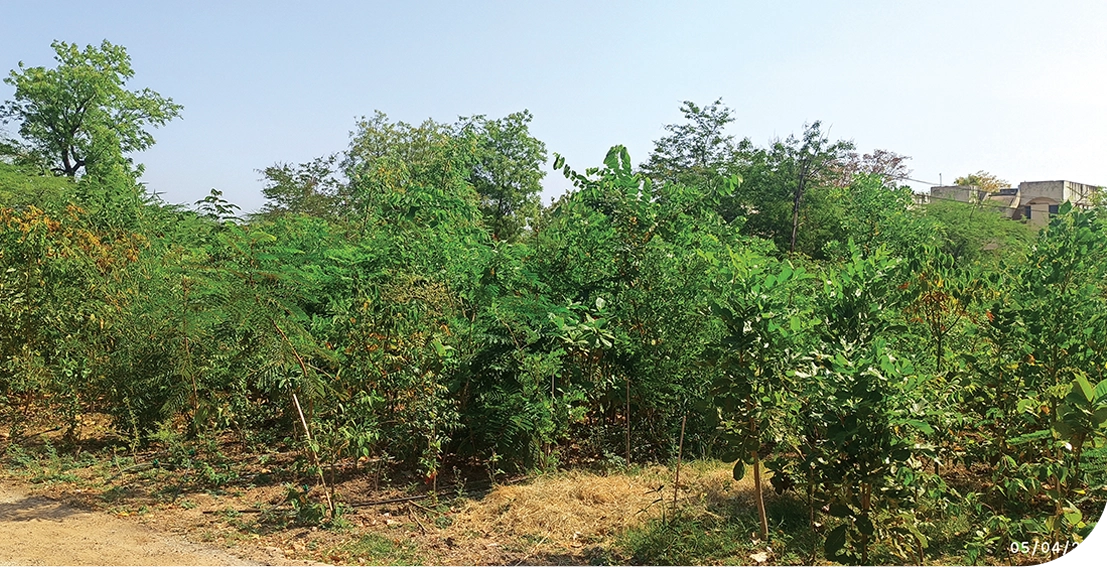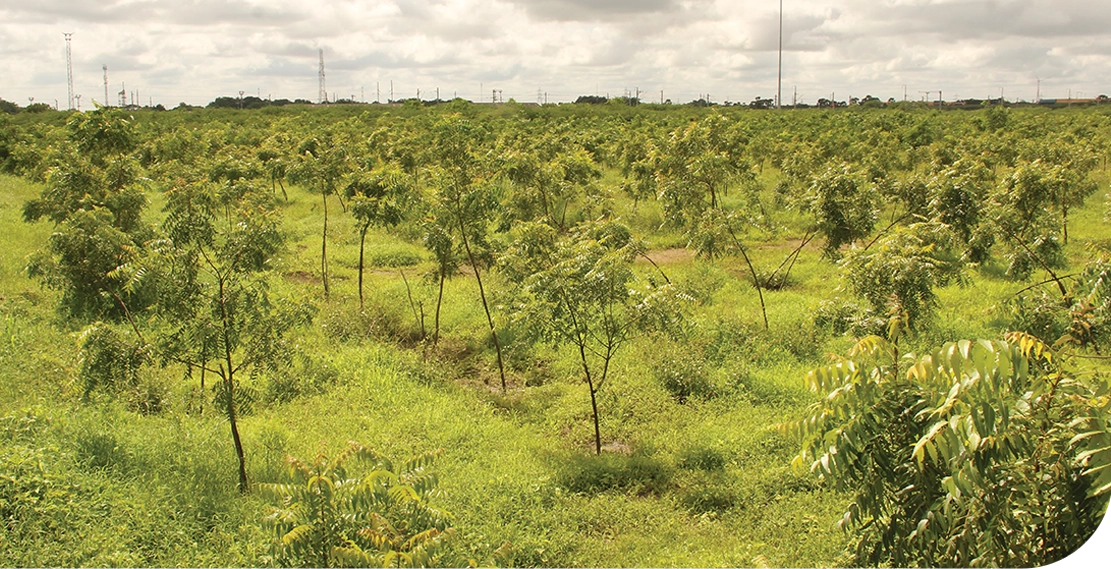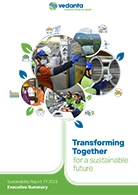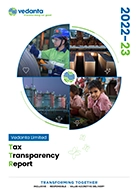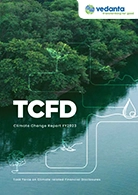Vedanta's centralised process system unlocks the power of automation and enables superior process controls
ESL improves blast furnace performance with process digital twin
Problem statement
Blast furnace involves various integrated processes. Operators at ESL Steel typically relied on their experience to control burden distribution, blowing parameters and casting parameters. Considering the multiple parameters and wide variation in input conditions, such decisions sometimes proved inaccurate, causing brief production drops and increased fuel rates due to sub-optimal control.
Solution
ESL is implementing the process of digital twin technology to address the challenge. This uses artificial intelligence (AI), machine learning and high-performance computing to optimise the equipment and the manufacturing process. It will facilitate efficient control of blast furnace operations through predictive alerts and provide data-backed standard operating procedure (SOP) for all controllable parameters.
The tool includes four modules which will help in:
- Getting a data-backed digital SOP for ensuring better burden distribution
- Facilitating real-time root-cause analysis of fuel rate increase to identify the actions to control it
- Assisting to improve control and prediction of hot metal silicon prediction to minimise variations
- Achieving better, real-time visibility of coke and sinter average particle size using computer vision
Currently, two modules have been implemented, and the other two will be launched in Q1 FY 2024.
Targeted outcome
4-5%*
Increase in production
~2%*
Annual cost reduction
US$ 8.4 MILLION*
Annual savings
*Based on H1 FY 2023 baseline
Next step
Fast-tracking implementation of the other two modules
Advanced process controller optimises efficiency and specific consumption at Lanjigarh
Problem statement
Alumina refining is a complex and highly interactive industrial process, necessitating advanced control strategies. Evaporation, in particular, is a critical aspect of the process, which utilises steam to concentrate the spent liquor from the process and effectively reutilises it, without disturbing process inventory. At Lanjigarh Refinery, this entire process was controlled in semi-automatic mode by operators, resulting in lower efficiency due to slow response time and operator driven variance. It inevitably led to higher specific steam consumption (SSC).
Solution
Lanjigarh Refinery implemented the advanced process control (APC) technique across the refinery process to improve performance.
APC is a robust system that optimises the operational efficiency of a process and productivity, by maintaining optimal operating conditions and integrating all possible process constraints into a predictive controller. This action helps to maintain dependent (controlled) variables at targeted levels or within constraints, by manipulating the independent variables.
At Lanjigarh, APC was implemented by developing a predictive model for controlling and optimising specific steam consumptions across the evaporation units by minimising variability and driving efficiencies. The Refinery has benefited as follows:
- Tighter control of process parameters and elimination of manual errors in the process following automation
- Decline in process variations resulting in enhanced efficiency and reduction in the specific consumption
- Auto optimisation of process control strategies with predictive algorithms
Next step
We intend to proliferate APC utilisation across different units of the refinery. An APC Global Optimiser is planned for overall process control and coordination and for building the platform for digital twins.
A thriving, self-sustaining ecosystem at Dariba Smelting Complex to restore the balance of nature.
Transforming the planet with Miyawaki afforestation at Dariba smelting complex
Problem statement
Number of trees in the world has halved, and every passing year another 15 billion are lost. This has harmed global biodiversity and ecosystems, threatened health and food security, and has made the world less resilient to climate change impact.
Solution
Vedanta has pledged to plant 7 million trees as part of the World Economic Forum’s ‘1 trillion trees’ campaign or UN SDG Goal of 1 million plantations by 2025.
To implement this pledge, we have undertaken a tree plantation drive at Dariba Smelting Complex (DSC) using the Miyawaki afforestation method. It involves planting dozens of native species in the same area, resulting in 10x faster plant growth and 30x denser than usual plantation, leading to higher carbon sequestration. Such a plantation becomes self-sustaining after the first three years. Besides, it is chemical-free and supports local biodiversity. Until now, 12,000 trees across 65 different species have been planted covering an area of one hectare.
Improved biodiversity
Through lowered temperature, better soil nutrition and wildlife support
Goals met
Vedanta Aim 6 innovation for greener business model
Next step
We plan to replicate the project across all units.
Sterlite secures 16 MW renewable energy contract for its green copper journey
Sterlite Copper advances low-carbon journey with green copper
Problem statement
Sterlite aims to promote responsible and environmentally sustainable production of copper to achieve its goal of net zero carbon emissions from operations by FY 2030. Green copper will enable a reduction in our carbon footprint and ensure optimal utilisation of resources while caring for communities.
Solution
Sterlite Copper has embraced revolutionary changes in daily operations to achieve the objective of green copper and reducing its carbon footprint. These include:
- Smart fuel optimisation project – AI-ML driven solutions have been successfully deployed in shaft furnaces of (Rod Plant and Blister Plant) for optimising fuel consumption
- Recycled copper production project – Using fire refined high conductivity (FRHC) technology to scale up recycled copper capacity by 20% to 4,000 tonnes/ month at Silvassa and by 30% to 3,400 tonnes/month at Fujairah. Secondary copper is melted and oxidised in the furnace
- Hybrid renewable energy (RE) contract – Power development agreements have been signed for 16 MW RE RTC to switch off from conventional thermal power
- Fleet decarbonisation – The project, being implemented at the Chinchpada plant, Silvassa, involves the conversion of pool vehicles to EV/CNG, employee commute vehicles to CNG and electrification of forklifts. It is expected to be completed by June 2023
Targeted Outcome
57%
GHG emission reduction (from FY 2021 baseline)
3,554 tCO2e
reduction through smart fuel optimisation
92,000 tCO2e
reduction through recycled copper rod production
64,535 tCO2e
reduction through hybrid renewable energy contract
Dariba Smelting Complex turnaround lead smelter to achieve 94.5% efficiency levels
Turning around lead smelter at Dariba Smelter
Problem statement
DSC’s lead smelter is designed for an optimal production capacity of 108 KTPA lead cathode at 93% efficiency, running 350 days and utilising 6.8 kiloampere (kA) current.
However, its production was unstable. A major hit was witnessed in Q4 FY 2022 due to parameters disturbance (purity and chemical composition) due to an externally sourced input commodity, which went unnoticed. This caused rough dendritic deposition on cathodes, causing corrosion, poor current efficiencies and lower weight deposition.
Solution
The smelting team did a thorough analysis to improve the production. This included brainstorming, benchmarking with similar smelters, holding a dialogue with industry experts and conducting a multi-variability study of cell house parameters and deviation (to compare numbers) using six-sigma regression modelling. Lastly, based on the data, test cell experimentations were done.
The correction finally came with continuous heavy-dose additions of Glue and B-Naphthol which brought the dendrite depositions under control and improved lead deposition. This has resulted in consistent lead production with better efficiency.
Outcome
65%
Increase in daily production rate to 330 tonnes from the lowest recorded level of 200 tonnes
94.5%
Efficiency levels achieved, up from 90% average
Highest-ever annual production
at 112.6 KTPA in FY 2023
Next step
We are working on a long-term plan to upgrade the cell house with advanced automation control systems, to drive efficiency through better control of process parameters.
